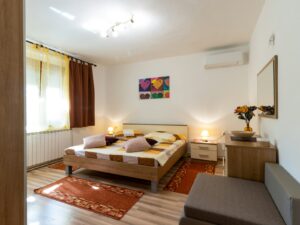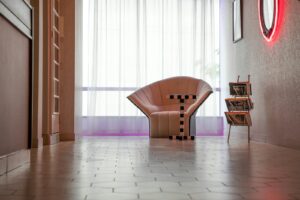One common concern among homeowners is whether luxury vinyl is noisy. In this comprehensive guide, we will debunk the myth surrounding noise in luxury vinyl flooring and provide an in-depth analysis of sound transmission in this flooring type.
Luxury vinyl flooring typically produces less noise compared to hardwood or laminate flooring. Its thicker construction and sound-absorbing properties help minimize noise, making it a popular choice for residential and commercial spaces.
Understanding Luxury Vinyl Flooring
Luxury vinyl flooring refers to a category of resilient flooring that mimics the look and feel of natural materials like hardwood and stone. It is available in various forms, including luxury vinyl planks (LVP) and luxury vinyl tiles (LVT). The benefits of luxury vinyl flooring extend beyond aesthetics, as it offers exceptional durability, resistance to water and moisture, and an affordable price point, making it a popular choice for many homeowners.
Luxury vinyl flooring is constructed using multiple layers, including a wear layer, printed or embossed design layer, and a backing layer. These layers contribute to its soundproofing properties. Additionally, the thickness and density of luxury vinyl planks play a significant role in reducing noise transmission. Furthermore, underlayment materials and proper installation techniques can further enhance noise reduction in luxury vinyl flooring.
Soundproofing Luxury Vinyl Flooring
In this guide, we will explore effective methods to soundproof luxury vinyl flooring, ensuring a quieter and more comfortable living environment.
Selecting a Suitable Underlayment
An underlayment acts as a barrier between the subfloor and the flooring material. Choosing a high-quality, acoustic-rated underlayment is crucial for effective soundproofing.
Consider rubber, cork, or foam-based underlayments, as they provide excellent sound absorption properties. For areas prone to moisture, opt for a moisture-resistant underlayment.
Proper Installation Techniques
Ensure the underlayment is installed without any gaps or overlaps. Properly securing it to the subfloor is essential for maximum soundproofing benefits.
Use acoustic sealant to seal the edges and seams of the underlayment to prevent sound leakage.
Choosing Thicker Luxury Vinyl Planks or Tiles
Opt for LVT with a thicker wear layer. A denser wear layer provides better sound insulation as it absorbs impact and reduces noise transmission.
Using Area Rugs or Carpets
Area rugs and carpets placed strategically in high-traffic areas can help absorb sound and reduce echoing.
Employing Soundproofing Mats or Panels
Consider placing acoustic mats or panels beneath the luxury vinyl flooring for additional sound insulation. These mats absorb impact noise and create a barrier against sound transmission.
Sealing Gaps and Joints
Seal any gaps or joints in the flooring, as well as around baseboards and thresholds, with acoustic sealant. This prevents sound from traveling through small openings.
Ensuring Proper Subfloor Preparation
A level and smooth subfloor helps prevent creaking and reduces sound transmission. Address any imperfections or unevenness before installing the underlayment.
Soundproofing Walls and Ceilings
Consider adding soundproofing materials to walls, such as acoustic panels, to further reduce noise transmission.
If applicable, consider installing acoustic tiles or panels on the ceiling to absorb sound and prevent it from traveling between floors.
Minimizing Impact Noise
Place felt or rubber pads under furniture legs to minimize impact noise when moving or repositioning items.
Professional Installation and Consultation
For complex installations or if unsure about specific techniques, consult with a professional flooring installer or acoustics expert.
Sound Measurement Metrics
To evaluate the acoustic performance of luxury vinyl, it’s crucial to look at specific metrics. Two key measurements are the Noise Reduction Coefficient (NRC) and the Impact Insulation Class (IIC).
This metric focuses on a material’s ability to absorb sound. A higher NRC indicates better sound absorption. Luxury vinyl, when paired with an appropriate underlayment, can exhibit commendable NRC values, effectively reducing echo and reverberation.
IIC measures a floor’s ability to absorb impact sound, such as footsteps or objects dropping. A higher IIC rating signifies better noise reduction capabilities. Luxury vinyl, especially when installed over a cushioned underlayment, can often achieve competitive IIC scores.
Read More
Is Luxury Vinyl Flooring Good for Humid Spaces?
Keep Luxury Vinyl Plank From Fading
Vinyl Plank Flooring vs Vinyl Sheet Flooring
How to Waterproof Vinyl Flooring
Waterproof Laminate Or Waterproof Vinyl?





